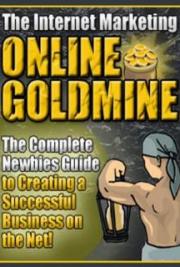have “third-party” or “spillover” effects. There may be costs or benefits that
impact individuals who are not engaged in the actual use of the good. When
this happens it is called an externality. Externalities can be positive (a benefit
is conferred on a third party) or negative (a cost is imposed on individuals).
These externalities may occur in consumption (smoking a cigar can impose
costs on others) or production (producing paper generates air and/or water
pollution).
In some cases it is technically impossible to exclude (prevent an individual)
individuals from the consumption and benefits of a produced economic good.
These are called collective or public goods. National defense is an example
of a public good. In other cases it may be technically possible to exclude
283
15.4 Exclusivity
individuals from the benefits of a good but the cost of doing so makes it
impractical. These are often referred to as quasi-public goods.
There are also “fugitive or fugacious” goods. A fugitive good is one that is
owned by no one until some one “captures” it. The process of capture and use
of these goods imposes cost on others. These goods are called “common
property resources.”
15.5 “MARKET FAILURE” AND PROPERTY RIGHTS
W ith the presence of externalities, public or collective goods and
common property resources, the information generated by market
transactions may be distorted and incorrect signals result in misallocation of
resources.
15.5.1 EXTERNALITIES
E xternalities may be positive or negative.
POSITIVE EXTERNALITY
A positive externality exists when there
MC
are “Social Benefits” that result from a
C
market transaction or the use of a
M
and V*
good. In Figure X.B.1 a positive
BM V
MBP + MBS
externality is shown. Individual J
A
perceives the marginal costs of X as
MBP (to the
Individual)
MC and the marginal benefits as MBP.
To optimize the net benefits the
X
X*
Quan, X
individual would want X amount.
Figure X.B.1
However, there are other individuals
284
15.5.1 Externalities
who benefit from the J’s use of good X. The MB of others or society is MBS.
The marginal benefit to society is MBP + MBS. the optimal amount of good X is
X*, not X. In the case of a positive externality, market exchanges result in
less than the optimal amount of the good. One solution is to subsidize good X
by the amount V*-A.
NEGATIVE EXTERNALITY
A negative externality exists when an
MCP + MCS
alternative results in costs being
C
imposed on individuals who are not
MCP
d Mn
B a V*
involved with the transaction or use of
M V
the good. An individual who smokes a
A
cigarette in a restaurant has made a
MB
X**
X
Quan, X
decision to smoke based on the
Figure X.B.2
marginal benefits and marginal costs to
themselves. The second hand costs impose marginal costs on others. In
Figure X.B.2 the individual recognizes the costs and benefits to themselves as
MCP and MBP. Recognizing these costs and benefits, the individual will
maximize net benefits by consuming X amount of good X. Since the
consumption of good X imposes costs on others, the MPP + MPS reflects the
marginal costs to the individual and society. The optimal amount of the good
from a social perspective is X** rather than X. A negative externality results in
decisions to produce and consume more than the socially optimal amount of a
good. One solution is levy a tax of V*-A on good X.
285
15.5.2 Public or Collective Goods
15.5.2 PUBLIC OR COLLECTIVE GOODS
A public good has two important characteristics. First, it is technically
impossible to exclude any individual from consuming the good. Second, the
marginal cost of the additional consumer is zero.
The optimal result in a market is that the output occur at the level where
the MB = MC and the price should reflect both the MB and MC:
MB = P = MC
When the MC of another user is zero the optimal price is also zero. It is not
possible for a private provider to produce and offer a public good for
consumption (unless they are an altruistic philanthropist). National defense is
the primary example of a public good. A private market will not produce a
public good.
Since individual cannot be excluded and there is no reason for them to
contribute to the costs of production, they become “free riders.” In some
cases free riders can be encouraged to contribute through social mechanisms
such as feelings of philanthropy or guilt. In cases where a society decides to
undertake an alternative, and an individual prefers not to be a participant, the
individual may become a forced rider.
15.5.3 COMMON PROPERTY
A common property resource is a fugitive resource that is owned by the
individual who “captures” it. The use of a common property resource imposes
costs on others in the society. Buffalo, whales, “commons” and water quality
are examples of common property resources.
Garret Hardin’s article on the Tragedy of the Commons discusses the
tradition of a common pasture in villages. Each person can use the commons
286
15.5.3 Common Property
to graze their animal. Since no one owns the commons the incentive is to get
another animal to graze. Since everyone has the same incentive every one
takes more animals to graze and eventually the commons is overgrazed and
every one loses.
287
16 References
16 REFERENCES
Aristotle, T
he P
olitics , Penguin Classics, 1962.
Audi, Robert. General Editor, The Cambridge Dictionary of Philosophy, Cambridge
University Press: Cambridge, 1995.
Bacon, Francis. T
he Worlds Great Classics: The Advancement of Learning and N
ovum
O
rganum , revised edition, The Colonial Press: New York, 1899, Edited by J. E.
Creighton.
Bentham, Jeremy, edited by Stark, W. Je
remy B
entham 's
Economic Writings , Volume III,
George Al en & Unwin, Ltd.: London, 1954.
Bentham, Jeremy. An Introduction to the Principles of Morals and Legislation, 1789,
reprinted in The Utilitarians, Anchor Books, Anchor Press/doubleday: Garden City, New
York, 1973
Blaug, Mark. The Methodology of Economics: or how economists explain, Cambridge
University Press, Cambridge, 1980.
Boland, Lawrence. “Methodology”, T
he New P
algrave : a Dictionary of Economics , Edited
by Eatwel , John, Murray Milgate and Peter Newman, MacMil an Press Limited, London,
1987.
Boorstin, Daniel J. The Discoverers: A History of Man’s Search to Know His World and
Himself, Random House: New York, 1983.
Boulding, Kenneth. Evolutionary Economics, Sage Publications: Beverly Hil s, 1981.
Bronowski, Jacob, The Common Sense of Science, Harvard University Press,
Cambridge, MA, 1978.
Bronowski, Jacob, T
he Origins of K
nowledge and Imagination , Yale University Press,
New Haven, 1978.
Burke, James and Robert Ornstein. Axemaker’s Gift, Grosset/Putnam Books: New York,
1995.
Burke, James, Connections, Little, Brown and Company, Boston, NY, Tronto, London,
1978.
288
16 References
Bynum, W.F., E.J. Browne and Roy Porter. Dictionary of th History of Science, Princeton
University Press: Princeton, 1981.
Coase, Ronald, “The Nature of the Firm,” Economica, November 1937, Reprinted in The
F
irm, The M
arket and the Law , University of Chicago Press, 1988.
Coase, Ronald, “The Institutional Structure of Production,” 1991 Alfred Nobel Memorial
Prize Lecture in Economic Sciences, Stockholm, 1991, Essays on Economics and
Economists, University of Chicago Press, 1995.
Coase, Ronald, “The Problem of Social Cost,” The Journal of Law and Economics, 3,
October 1960, Reprinted in T
he Firm, The M
arket and the Law , University of Chicago
Press, 1988
Commons, John R. L
egal Foundations of C
apitalism , university of Wisconsin Press,
1924, reprinted 1957.
Eklund, Robert, and Robert Hébert, S
ecret Origins of Modern M
icroeconomics , University
of Chicago Press, 1999.
Feyerabend, Paul. Against Method, Verso: London, 1988. (Original y published by New
Left Books, 1975)
Fisher, Robert. T
he L
ogic of Economic Discovery , New York University Press: NY, 1986.
Friedman, Milton. "The Methodology of Positive Economics," The Methodology of
Positive Economics, University of Chicago Press: Chicago, 1953.
Furubotn, Eirik and Svetozar Pejovich, T
he Economics of P
roperty Rights , Cambridge,
Mass. Bal enger, 1974
Gordon, Scott. T
he History and Philosophy of S
ocial Science , Routledge: London, 1991.
Hausman, Daniel. Essays on Philosophy and Economic Methodology, Cambridge
University Press, Cambridge, 1992.
Hausman, Daniel. The Inexact and Separate Science of Economics, Cambridge
University Press, 1992
Heilbroner, Robert, The Making of an Economic Society, 9th edition, Prentice Hal , 1993
Heilbroner, Robert, Behind the Veil of Economics, W.W Norton,NY, London, 1988.
289
16 References
Hil , Ivan,(editor) The Ethical Basis of Economic Freedom, American Viewpoint, Chapel
Hil , NC,1976.
Jardine, Lisa. Worldly Goods: A New History of the Renaissance, Doubleday: New York,
1996.
Kahneman, Daniel, “Maps of Bounded Rationality” Psychology for Behavioral
Economics,” American Economic Review, vol. 93, no. 5, December, 2003, pp 1449-1475.
Keen Sam and Anne Val ey-Fox. Your Mythic Journey, Jeremy P. Tarcher, Inc.: LA 1989.
Kuhn, Thomas. The Structure of Scientific Revolutions, 2cd Edition, University of Chicago
Press: Chicago, 1970.
Lakatos, Imre and Alan Musgrave. C
riticism and The Growth of K
nowledge , Cambridge
University Press: Cambridge, 1970.
Lakatos, Imre. Proofs and Refutations, Cambridge University Press: Cambridge, 1976.
Lessig, Lawrence. The Future of Ideas: The Fate of The Commons in a Connected
World, Vintage Books/Random House Inc., 2002.
Lessig, Lawrence. F
ree Culture: How Big Media Uses T
echnology and The Law to Lock
Down Culture and Control Creativity, The Penguin Press, 2004. This PDF version of Free
Culture is licensed under a Creative Commons license. This license permits non-
commercial use of this work, so long as attribution is given.
<http://creativecommons.org/licenses/by-nc/1.0/>.
Locke, John. An Essay Concerning Human Understanding, [1689], Clarendon Press:
Oxford, 1975.
Mäki, Uskali, Bo Gustafsson and Christian Knudsen. R
ationality, I nstitutions and
Economic Methodology, Routledge, London, 1993.
Marshal , Alfred, Principles of Economics, 8th edition, 1920, Porcupine Press, reprint.
Mayer, Thomas. Truth versus Precision in Economics, Edward Elgar, Aldershot, 1992.
McCloskey, Deirdre. The Rhetoric of Economics, University of Wisconsin Press: Madison,
Wisconsin, 1985.
290
16 References
McCloskey, Deirdre. "The Rhetoric of Economics," Journal of Economic Literature,
Volume 21, June 1983, pp 481-517.
McCloskey, Deirdre. I f You're So S
mart , University of Chicago Press: Chicago, 1990.
McConnel , Principles of Economics, McGraw-Hil Irwin, 2002.
Meeks, Gay. Thoughtful Economic Man, Cambridge University Press, Cambridge, 1991.
Mil , John Stuart. “A System of Logic: Ratiocinative and Inductive,” 1843, the abridged
version John Stuart Mil ’s P
hilosophy of S
cientific Method , Hafner Publishing Co.: New
York, 1950.
Mil , John Stuart, Principles of Political Economy, The Colonial Press, 1900.
Mokyr, Joel, T
he Gifts of Athena: Historical Origins of the K
nowledge Economy , Princeton
University Press, Princeton, 2002.
Newton, Isaac. (1687) The Principia, Prometheus Books: Amherst, New York, [Translated
by Andrew Motte], 1995.
North, Douglass C. I nstitutions , Institutional Change and Economic P
erformance ,
Cambridge University Press, Cambridge, 1990.
Pheby, John. Methodology and Economics: a critical introduction, M.E. Sharpe, Armonk,
NY, 1988.
Plato, T
he R
epublic , G
reat Dialogues of P
lato , New American Library, 1956.
Popper, Karl, T
he L
ogic of Scientific Discovery , Hutchinson, 1959, Harper and Row,
1959.
Popper, Karl. C
onjectures and Refutations: The Growth of Scientific K
nowledge , Second
Edition, Basic Books: NY, 1963.
Popper, Karl. T
he L
ogic of Scientific Discovery , Harper Torchbook: NY, 1968. Original y
published as Logik der Forschung, in 1934 with the imprint, 1935.
Posner, Richard. Economic Analysis of the Law, Little and Brown, 1972
Postman, Neil. T
echnopoly: The Surrender of Culture to T
echnology , Alfred A. Knopf:
New York, 1992.
291
16 References
Postman, Neil. The End of Education, Vintage Books, Division of Random House: New
York, 1996.
Rawls, John. A
Theory of Social Justice , Harvard University Press: Cambridge
Massachusetts, 1971.
Robinson, Joan. Economic Philosophy: An Essay on the Progress of Economic Thought,
Anchor Books: Garden City, NY, 1962.
Samuels, Warren, Steven Medema, Al an Schmid, The Economy as a Process of
Valuation, Edward Elgar, Cheltenham, UK, 1997.
Samuelson, Paul and Wil iam Nordhaus, E
conomics , 14th Edition, McGraw-Hil , Inc.: NY,
1992.
Schwartz, Joseph. The Creative Moment: How Science Made Itself Alien to Modern
Culture, HarperCol ins Publishers: New York, 1992.
Smith, Adam, A
n Inquiry into the Nature and Causes of the W
ealth of Nations , Modern
Library, Random House, 1937.
Smith, Adam, The Theory of Moral Sentiments, 1759, Liberty Classics, 1969
Smith, Adam, Lectures on Jurisprudence, 1762-63, 1766, Liberty Classics, 1982.
Stigler, George. The Economist as Preacher, Basil Blackwel : Oxford, 1982.
Stigler, George. "The Theory of Economic Regulation," B
el Jo
u r nal of Economics , 2,
1971:3-21)
Swedberg, Richard. "The New Battle of Methods," Chal enge, Vol. 33, no. 1, Jan/Feb
1990, pp 33-38.
Tal is, Raymond. N
ewton ’s
Sleep: Two Cultures and Two Kingdoms , St. Martin’s Press:
New York, 1995.
Tilman, Rick, A
V
eblen Treasury , M.E. Sharpe, 1993.
292
16 References
Alphabetical Index
Abductive Reasoning..................................................................................................53
ALCOA......................................................................................................................256
Allocative efficiency............................................................................................91, 229
Anarchy.....................................................................................................................128
Antitrust....................................................................................................................119
Aristotle...........................................................................8, 10, 11, 45, 52, 73, 103, 288
Augustin....................................................................................................144, 163, 263
Austrian......................................................................................................116, 145-147
Average product.......................................................................................................205
Average revenue........................................................................................................191
Bacon..................................................................................................................52, 288
Bentham........................................................................83-85, 132, 142-144, 168, 288
Blackwell..........................................................................................................140, 292
Blaug..................................................................................................................50, 288
Boland......................................................................................................................288
Boorstin....................................................................................................................288
Booth..........................................................................................................................62
Boulding...................................................................................................................288
Braithwaite...............................................................................................................128
Bronowski..............................................................................................45, 46, 48, 288
Burke..................................................................................................................36, 288
Bynum......................................................................................................................289
Camus.........................................................................................................................98
Cantillon....................................................................................................................141
Capital..........................................................................................22, 30, 209, 210, 271
Capitalism..........................................................................................................68, 289
Cartesian.....................................................................................................................45
Census.......................................................................................................................277
Centrally planned.......................................................................................................39
Church........................................................................................................................111
Clark.........................................................................................................................269
Classical economics...........................................................................................140, 141
Claude........................................................................................................................116
Clayton......................................................................................................................119
Coase.......................................................................................................14, 69, 76, 289
Colbertism................................................................................................................140
Collective..................................................................................................................286
Command Economies...............................................................................................110
293
16 References







